 StartupCities
StartupCities






 Who?
Who?I'm a software engineer and entrepreneur focused on modern web technologies and AI.
Here's an ongoing autobiography, which also shares the story of my by-the-bootstraps "unschooling" education: now the subject of a chapter on grit and resilience in the bestselling book Mindshift by Barbara Oakley.
An angel investor once described my core soft skill in the role of founder or early team member as: "The ability to perceive exactly what needs to be done. And then to do it."
My experience working in difficult environments around the world means that I can be trusted to get things done, even when things go wrong.
In the past, I coined the term "Startup Cities" as co-founder of StartupCities.org and a startup spinoff, both of which focused on why startups should build cities. I now write about Startup Cities at StartupCities.com
I've won several awards for economic research and have been published or interviewed in Virgin Entrepreneur, a16z's Future.com, The Atlantic's CityLab, Foreign Policy, and in academic volumes by Routledge and Palgrave MacMillan.
Wait... what is this site?
This is my personal portfolio, inspired by the question: "What would the opposite of the two-color template developer blog look like?"
Have fun exploring!
Click the Start Menu to learn more.
Contact:hello @ zach.dev



Startup Cities
What if Cities Could Progress at the Pace of Technology?

La Limonada
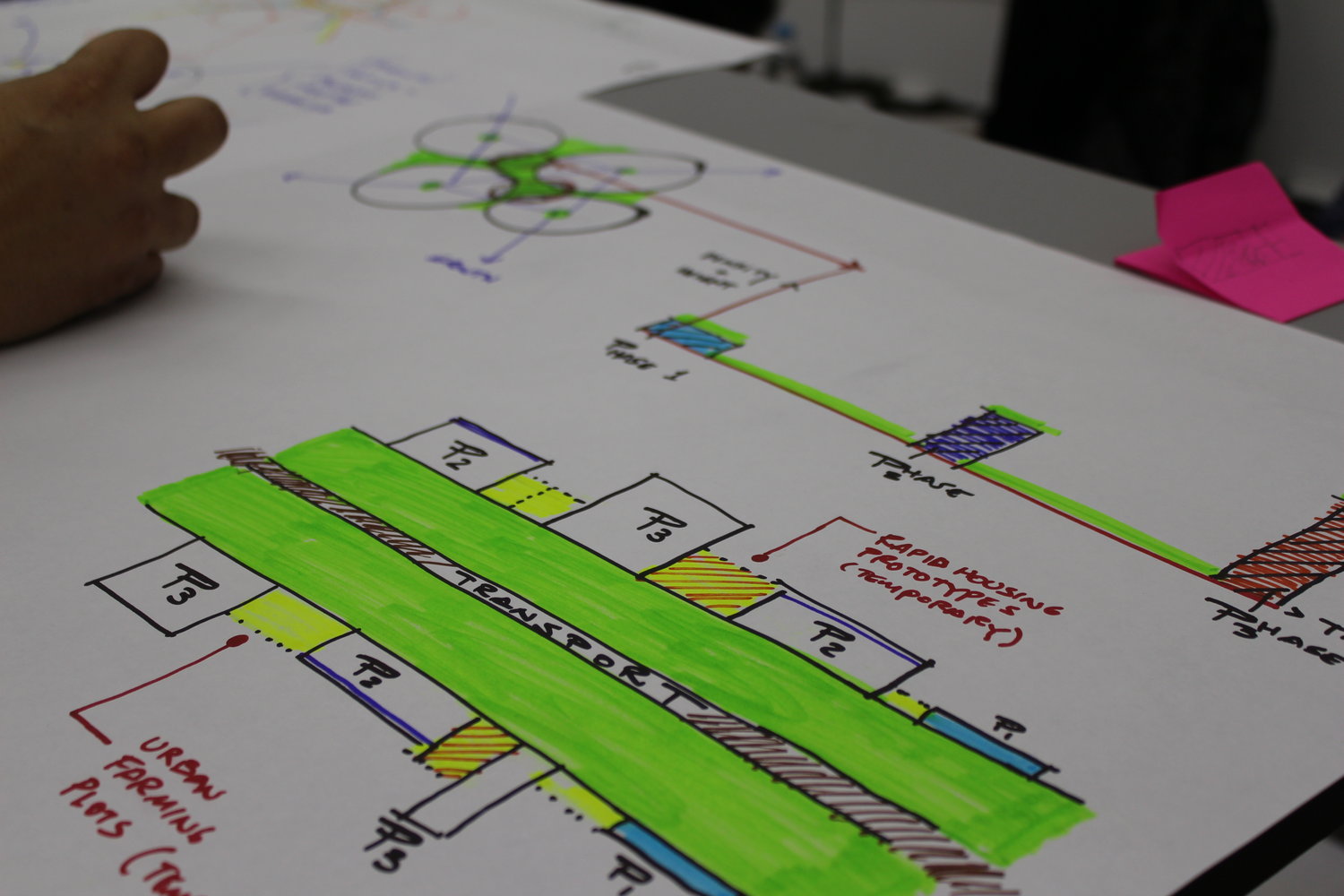
Update 2016: My work with Startup Cities was acknowledged by the World Design Organization when I was selected as a judge to choose the World Design Capital 2020.
Making Cities More Entrepreneurial
I've long been captivated by the positive role that entrepreneurship can play in the lives of others.
Startup Cities was an R&D project and startup that I built, raised money for, promoted, developed and led from 2012 until 2016. It started as a side project that I joined as an intern. At the start, I worked as a journalist and later at a conference about entrepreneurship.
Eventually, Startup Cities grew to a full-time job when I assumed directorship in 2013. We were a scrappy bunch and I am extremely cheap, so even after I raised money in San Francisco I ran the project out of a storage room.
Startup Cities Institute, the R&D arm of the project, was a collection of work and distributed think tank of fans and advocates of entrepreneurship in cities.

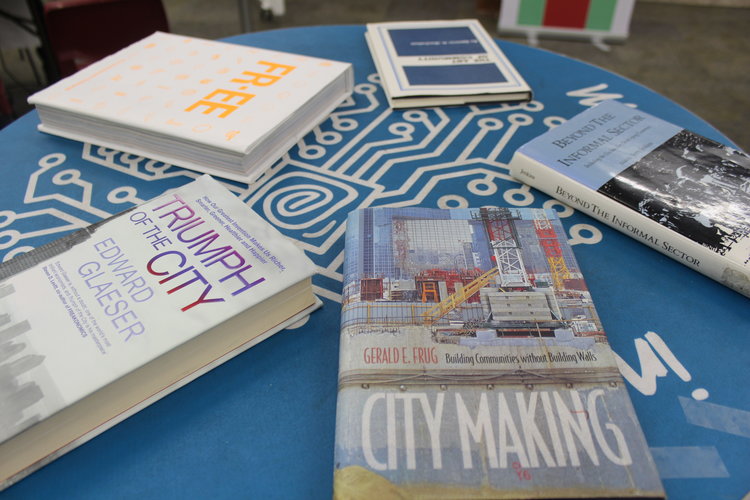
As an R&D org, I worked alone and later with a small team. We did a lot of stuff to promote the positive impact of entrepreneurship in cities including:
- held several large events attended by entrepreneurs, investors, mayors, and reformers to talk to them about the positive role and possibilities of entrepreneurship in cities
- conducted interviews with several experts in technology, architecture, and entrepreneurship
- ran a charette-style collaboration weekend on 'Minimum Viable Communities' with one of Mexico's top architects
- created a partnership with an experimental economics lab to offer policy prototyping services to cities
- commented on issues and conducted interviews for outlets including Foreign Policy, Virgin, and the Atlantic's CityLab
- negotiated the donation of several large archives of personal papers related to entrepreneurship, urbanism, special economic zones, and real estate
- advised entrepreneurs, mayors, municipalities, and other groups working in cities
- I co-wrote the winning proposal to bring the MIT Global Startup Workshop to Central America for the first time
- influenced several speakers and papers written by others, who cited our work
- did tons of speaking engagements all over the world, some of which you can see on this site
- wrote lots of papers and articles, some of which you can see on this site
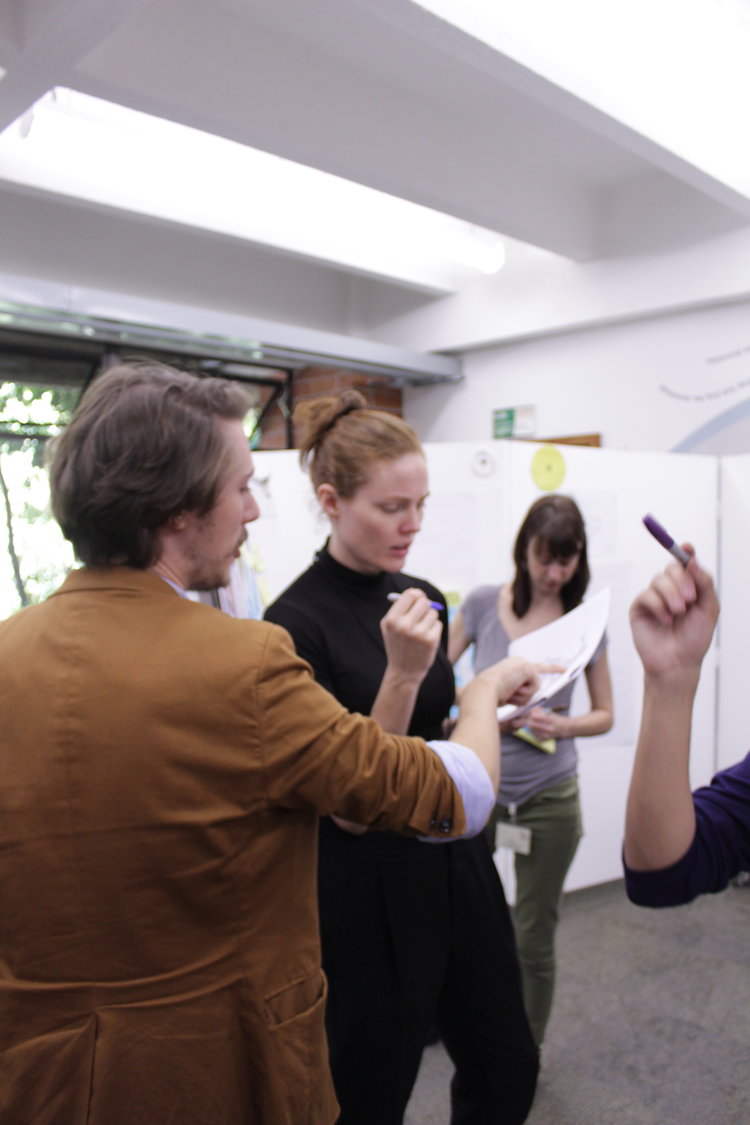

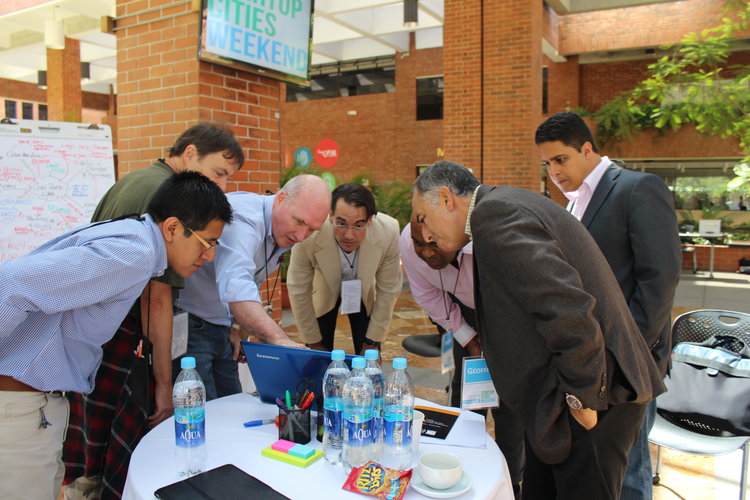
How Richard Branson Wrecked my Inbox
One day I woke up with a full inbox because Richard Branson had promoted Startup Cities online. The speaking invitations and interest poured in.
This convinced me it might be possible to take the learning we were doing and turn it into a business.
We got in touch with blighted communities who had municipal land banks.
These non-profit land banks were full of hard working municipal officials who were stuck selling properties at a loss. It was clear in our interviews with officials that they viewed the abandoned properties in their city as a giant liability.
We suggested that they view their portfolio of abandoned properties not as a giant liability for the city, but as a valuable asset.
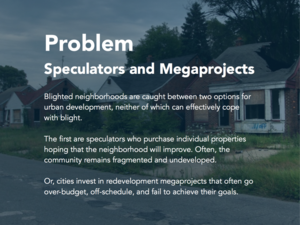
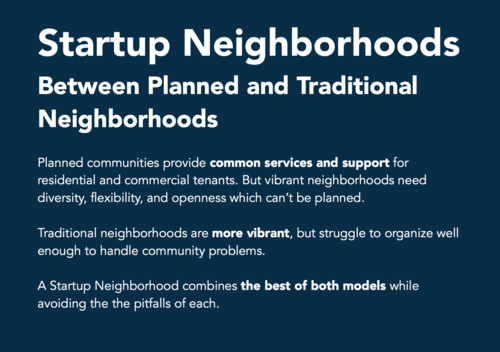
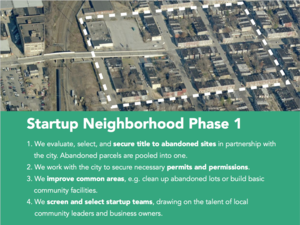
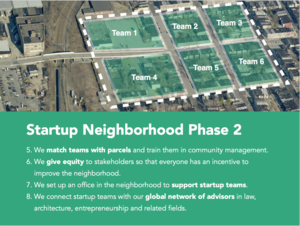
In fact, municipal land banks could become like urban venture capitalists, investing for impact in their city. Rather than sell off properties one by one at a loss, we suggested they bundle abandoned properties together and try to list them on the stock market as joint-stock companies.
These 'startup neighborhoods' would be developed by the competitive prototyping of startup teams with seed funding from the pool of investors. The fluctuating stock price would discipline the entrepreneurs involved, effectively acting like a prediction market for whether these entrepreneurs were creating or destroying value in the neighborhood. This last bit is less crazy than it sounds – some cities already do it.
These startup teams would then cooperate and compete to discover new and valued uses for the different urban spaces.
Cities were interested.
One lawyer in Detroit told us how exciting it would be to tell people to "BUY DETROIT" once again! But this time, they would be investing quite literally in the city.
It all sounds very capitalistic, but I still believe it's a more humane approach than traditional megaprojects. Rather than calling community members figurative 'stakeholders' in the development process, they could become literal shareholders.
 With physicist/urbanist Geoffrey West at the Santa Fe institute
With physicist/urbanist Geoffrey West at the Santa Fe institute
Here are some reasons why cities thought this approach could be effective and humane:
- The city, the municipal land bank, and nearby residents could receive equity in the project before listing. This allows everyone to become truly invested and benefit from the success of the surrounding area.
- This approach fights gentrification. As shareholders, nearby residents could become wealthy from the neighborhood's success – rather than be gentrified out of the area.
- Citizens' tax money is not gambled on speculative ideas, so only those who chose to risk their capital as investors suffer if the project fails.
- There's almost no downside – the worst case scenario is that the neighborhood returns to being abandoned.
- Prototyping works. Whereas megaprojects have a well-studied and abysmal record. So why not apply prototyping to neighborhoods?
- Although far from perfect, putting the project on the stock market provides immediate feedback when decisions are made. This imposes tighter feedback on developers in a way that the current system of sweetheart-deals-by-RFP with cities often does not.
Failure
I raised money in Silicon Valley around this idea and spent most of a year trying to break into the abandoned property real estate market. My business partner and I even took the project to the final stages of YCombinator in San Francisco. After our interview in Mountain View, we received a very kind rejection notice, telling us to reapply when we had a tech product.
We had a few big problems.
First, cities wanted us to arrive with a bunch of money and social connections proving that we could do this. It was understandable. Unfortunately, investors told us several times, "If you can convince the city to sell the land as you say, then you'll have all the money and support from us that you need." But without the investment, we couldn't secure the land.
Second, to allow for real prototyping, you'd need a mixed-use variance or some significant openness in land-use and zoning rules for the area. In many cities, this is a nightmare. We were told by one official that we could expect to wait eleven years for permission. Plus, we would have to pay several thousand dollars every six months for a hearing.
We started to look outside the U.S. and had warm responses from many different countries. But each time the regulatory and legal complications were beyond our reach and budget.
I accepted that we were going to fail on a plane ride.
Just by luck, I took a flight where I was seated next to an successful real estate entrepreneur.
I told him my pitch and he looked me straight in the eye and said,
"Your concept is great. But you will never be able to do this without millions of dollars and major insider connections in your target city. My fortune was built by having the right friends in city hall."
We gently wound down our work on Startup Neighborhoods through 2015.
What I Could Have Done Better
Accept failure earlier. I really believed that we could make a positive difference in the world through our work. But there were many warning signs as we moved into the startup space that things wouldn't work out. I should have cut our losses and turned my attention elsewhere, earlier.
Understand the cynical reality of legal and regulatory issues. I went crashing into this opportunity with the enthusiasm of an entrepreneur, not the careful thoughtfulness of a lawyer. I should have spent more time understanding how complex the legal side of the opportunity would be.
Be Realistic about pie-in-the-sky R&D Ideas. During this phase of my life, I was more of an idealist. And I was idealistic about how much we would be able to accomplish because I saw Startup Cities as an unequivocal good for the world. The logic of the idea was compelling to me as a system. But a beautiful logical idea does not necessary make a good business. I look back and see how naive I was to think we could get traction with the strategy we pursued.




















